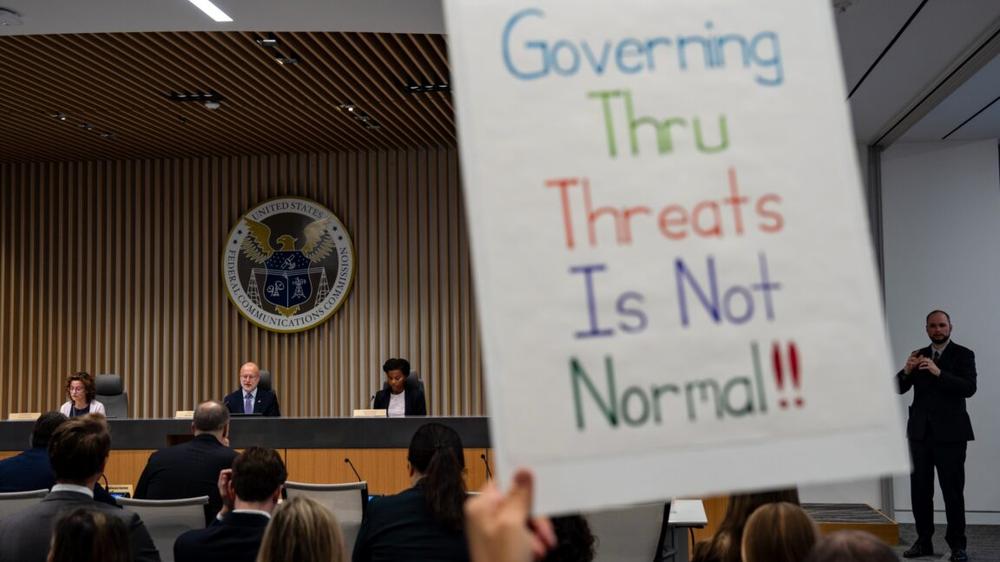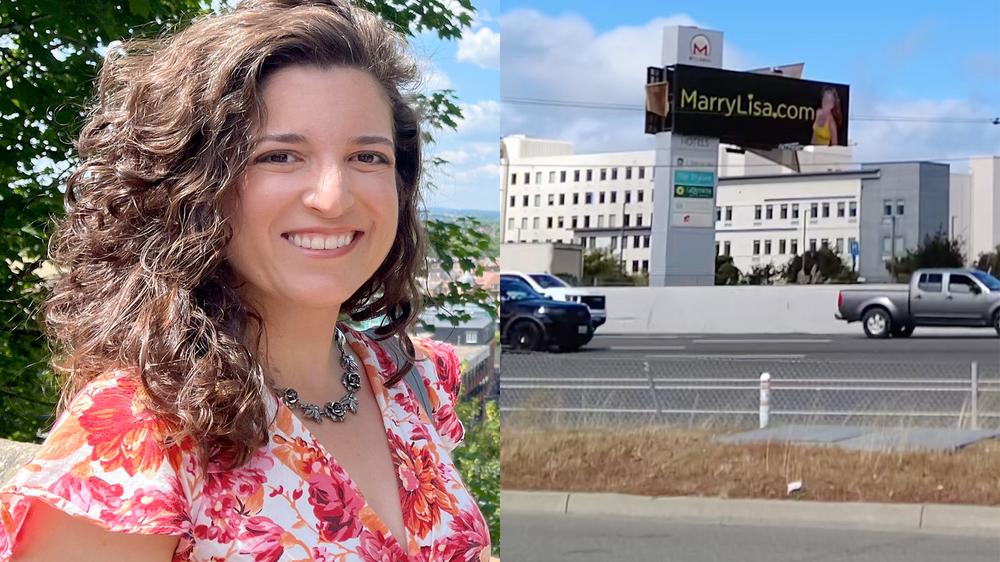Fresh off his crusade against Jimmy Kimmel and ABC, the chair of the Federal Communications Commission may eliminate TV station ownership limits in a potential gift for station owners like Sinclair and Nexstar.
When FCC Chairman Brendan Carr threatened ABC affiliates with license revocations for carrying Jimmy Kimmel's show, he said that national networks exert too much control over local TV stations and that he's trying "to empower local TV stations to serve the needs of the local communities." Taking a cue from Carr, Sinclair and Nexstar continued blocking Jimmy Kimmel Live! on their ABC affiliates even after ABC and its owner Disney ended Kimmel's suspension.
Within days, Sinclair and Nexstar decided to put Kimmel back on the air. Pressure from viewers and advertisers likely played a major role in the reversal. But for Carr, the episode might reinforce his belief that station groups should have more influence over national programming.
Today, Carr's FCC voted to seek public comment on a Notice of Proposed Rulemaking (NPRM) that could result in certain broadcast ownership limits being scrapped or changed. This includes the Local Radio Ownership Rule that "limits the total number of radio stations that may be commonly owned in a local market" and the Local Television Rule that "limits a single entity from owning more than two television stations in the same local market," the FCC said.
"In recent years, numerous online audio and video streaming services have emerged, fundamentally changing how broadcast radio and television compete in the media marketplace. Our broadcast ownership rules should reflect these changes," Carr said today.
Protesters: “Fire Carr, the censorship czar”
The FCC is required to periodically evaluate whether the rules still serve the public interest. Carr criticized previous FCC leaders for not eliminating ownership rules.
"Indeed, just this year, the [US Court of Appeals for the] Eighth Circuit determined that the FCC acted arbitrarily and capriciously when it adopted the last Quadrennial Review order," Carr said. "In doing so, the court emphasized the deregulatory nature of the Quadrennial Review provisions that Congress added to the statute. Ultimately, the court vacated the FCC's decision to retain the 'top-four' rule, which prohibits a single entity from owning or controlling two of the top four television stations in a local market."
Today's meeting was briefly disrupted by protesters chanting, "Fire Carr, the censorship czar."
The FCC is separately reviewing the national ownership cap that prevents a single entity from owning or controlling broadcast television stations that reach more than 39 percent of TV audience households in the United States. The agency issued a public notice in June to seek public comment on potentially changing or eliminating the rule.
Sinclair, Nexstar, and other station owners urged the FCC to scrap the rule, saying there's no justification for a restriction affecting only broadcasters "in a marketplace dominated by the likes of Google/YouTube, Amazon, Meta, and Netflix." Nexstar in particular is hoping for a change so it can complete a $6.2 billion purchase of Tegna.
The NPRM approved today also seeks comment on whether to eliminate the Dual Network Rule that effectively prohibits mergers involving the Big Four broadcast networks (ABC, CBS, FOX, and NBC).
Local stations “trapped in the middle”
Technically, the FCC is continuing the 2022 quadrennial review of broadcast ownership rules that started during the Biden administration. The FCC is required to review the rules every four years. But significant changes seem more likely under Carr, who has supported President Trump's ongoing war against national networks over supposed bias against conservatives.
Anna Gomez, the only Democrat on the Republican-majority commission, criticized Carr's fight against ABC in her comments at today's FCC meeting. Carr's FCC "seiz[ed] on a late-night comedian's comments as a pretext to punish speech it disliked" in "an act of clear government intimidation," she said.
Gomez said that "corporate behemoths who own large swaths of local stations across the country" continued blocking Kimmel for several days after the show returned "because these billion-dollar media companies have business before the FCC. They will need regulatory approval of their transactions and are pushing to reduce regulatory guardrails so they can grow even bigger."
Local stations are "trapped in the middle as these massive companies impose their will and their values upon local communities," Gomez continued. "This precise example neatly encapsulates the danger of allowing vast and unfettered media consolidation. This could drastically alter the media ecosystem and the number of voices that are a part of it."
National ownership cap
Gomez didn't vote against today's action. She said the NPRM "is required by statute" and that she supports "seeking comment on these very important issues." But Gomez said she's concerned about consolidation limiting the variety of news and viewpoints on local TV stations.
Congress set the national ownership cap at 39 percent in 2004 and exempted the cap from the FCC's required quadrennial review of media ownership rules. There is debate over whether the FCC has the authority to eliminate the national limit, and Gomez argued that "given the prior Congressional action, I believe that only Congress can raise the cap."
The FCC's "regulatory structure is in large part based on a balance of power between national networks with incentives to serve national interests and local broadcasters with incentives to serve their local communities," Gomez said. That balance could be disrupted by a single company owning enough broadcast stations to reach the majority of US households, she said.
"In the past two weeks, the public has raised serious concerns that large station groups made programming decisions to serve their national corporate interests, not their communities of license," Gomez said. "What is the impact of letting them get even bigger?"

 Haliey Welch moves to Twitch after ‘Talk Tuah’ podcast became “too much”
Haliey Welch moves to Twitch after ‘Talk Tuah’ podcast became “too much”